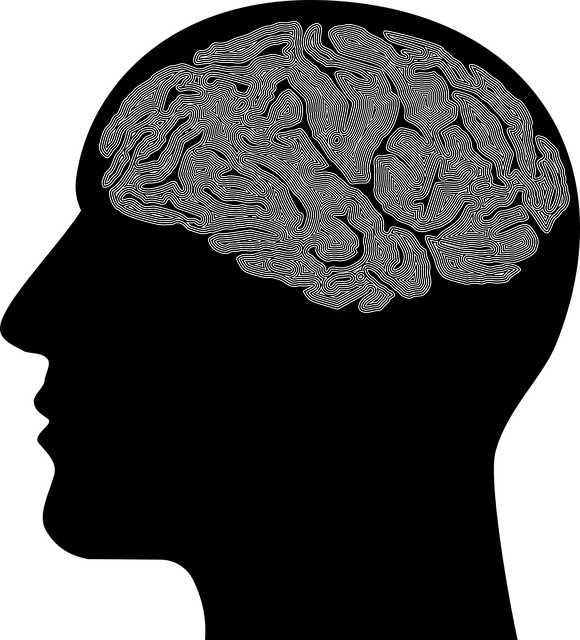Kaiser Permanente in Castle Rock prioritizes culturally competent mental healthcare through initiatives like Stress Management Workshops and Community Outreach Programs, bridging gaps for diverse communities. Their training programs, focusing on stress reduction and stigma reduction, empower providers to offer inclusive, effective care. This integrated approach improves access, reduces stigma, fosters open dialogue, and enhances patient outcomes, as demonstrated by successful mental health initiatives in the region.
Healthcare provider cultural competency training is a vital component in delivering quality care. In today’s diverse society, understanding and respecting different cultural backgrounds are essential for effective patient interactions. This article explores the critical need for cultural competency in healthcare through various lenses. We delve into Kaiser Permanente’s impactful mental health initiatives, examine successful training programs, and highlight real-world applications, including inspiring stories from Castle Rock Community.
- Understanding Cultural Competency in Healthcare: A Necessary Approach
- Kaiser Permanente's Mental Health Initiatives and Their Impact
- Training Programs: Effective Strategies for Provider Education
- Real-World Application: Success Stories from Castle Rock Community
Understanding Cultural Competency in Healthcare: A Necessary Approach

Cultural competency in healthcare is a critical aspect that often determines the quality and effectiveness of patient care. It involves understanding and respecting diverse cultural backgrounds, beliefs, values, and practices among patients and their families. In today’s diverse society, healthcare providers need to be equipped with the knowledge and skills to navigate different cultural contexts, especially when addressing mental health concerns. Organizations like Kaiser Permanente recognize this necessity and have implemented various initiatives, such as Stress Management Workshops and Crisis Intervention Guidance, to foster a culturally competent environment.
By embracing cultural competency, healthcare organizations can create an inclusive setting where patients from all walks of life feel heard and understood. For instance, the implementation of Community Outreach Programs can bridge the gap between healthcare services and underrepresented communities in areas like Castle Rock. Such approaches ensure that mental health resources are accessible and tailored to meet the unique needs of diverse populations, ultimately improving patient outcomes and satisfaction.
Kaiser Permanente's Mental Health Initiatives and Their Impact

Kaiser Permanente’s Mental Health Initiatives in Castle Rock have been a game-changer in promoting community well-being. The organization has recognized the importance of addressing mental health as an integral part of overall healthcare. One notable program is their Self-Care Routine Development for Better Mental Health, which encourages individuals to prioritize self-care as a proactive measure against stress and anxiety. Through workshops and educational sessions, residents learn strategies to manage their mental well-being, fostering a sense of inner strength and resilience.
These initiatives extend beyond individual care with the implementation of Community Outreach Programs. Kaiser Permanente actively engages with local communities, providing resources and support to groups that may face unique mental health challenges. By integrating these programs, Kaiser Permanente Castle Rock is not only improving access to mental healthcare but also fostering a culture of open dialogue around mental well-being, ensuring that folks feel empowered to seek help when needed.
Training Programs: Effective Strategies for Provider Education

Effective training programs are essential for healthcare provider education, especially when addressing cultural competency in diverse communities. Organizations like Kaiser Permanente recognize the importance of equipping their providers with the tools to offer quality care to all patients. One successful strategy involves interactive workshops that focus on stress management and conflict resolution techniques, enabling medical professionals to handle challenging situations sensitively and effectively. These sessions can also contribute to reducing the mental illness stigma, fostering a more inclusive environment.
For instance, Castle Rock-based healthcare providers have benefited from specialized training that incorporates Mental Illness Stigma Reduction Efforts. Such initiatives promote empathy and cultural understanding, allowing healthcare workers to connect better with patients from different backgrounds. By combining theoretical knowledge with practical exercises, these programs ensure that providers are well-prepared to navigate complex patient interactions and deliver compassionate care.
Real-World Application: Success Stories from Castle Rock Community

In Castle Rock Community, healthcare providers have been empowered through cultural competency training, leading to remarkable real-world applications. Kaiser Permanente’s mental health services in this region have seen significant improvements, with a focus on understanding and addressing diverse patient needs. The implementation of the Mental Wellness Podcast Series Production has played a pivotal role in engaging communities and promoting mental wellness coaching programs development. These initiatives encourage open dialogue about mental health, fostering a more inclusive environment for all patients.
Furthermore, Compassion Cultivation Practices have been integrated into the training curriculum, allowing healthcare professionals to cultivate empathy and build stronger connections with patients from various cultural backgrounds. This holistic approach has not only enhanced patient outcomes but also improved provider satisfaction and retention rates. The success stories from Castle Rock Community serve as a testament to the power of continuous learning and cultural sensitivity in healthcare delivery.
Cultural competency training in healthcare, as demonstrated by Kaiser Permanente’s initiatives and the success in Castle Rock, is no longer a choice but an imperative. By equipping providers with the skills to understand and address diverse cultural needs, we can improve patient outcomes and foster more inclusive care environments. These programs, when effectively implemented, have the potential to revolutionize mental health services, ensuring that everyone, regardless of their background, receives respectful and effective treatment.






